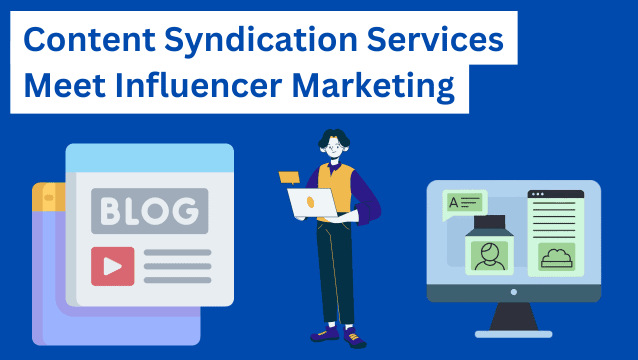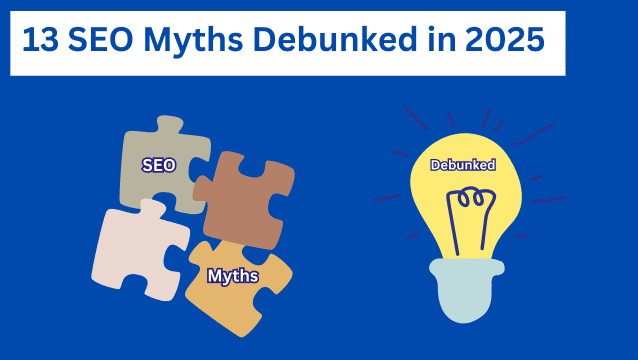Blogging may have been around for decades, but it’s still going strong and can still be a lucrative investment when done right. But how does one monetize a blog?
This multifaceted topic starts with building a successful blog and driving traffic to it—more than we’ll cover here. This guide focuses on how to monetize a popular blog.
Let’s get to the top eight ways to monetize a blog and some best practices to consider to promote and sustain it.
8 ways to monetize a blog
Here are eight unique ways to make money off your blog (provided it already has organic traffic).
1. Take on sponsors
Sponsorship is among the most common ways people and companies sustain their earned media channels (such as email lists and blogs). For example, Jeremy Moser (the founder of uSERP) begins some of his newsletters with a message from a sponsor.
Screenshot provided by the author
Similarly, many online blogs run paid posts for their sponsors. While it’s more of a newspaper publication and less of a blog, here’s an example of the NYT running a paid post by Netflix.
There are other ways to collaborate to collaborate with sponsors when it comes to your blog, such as:
- Letting your blog become completely company-sponsored. That’s to say, the sponsor essentially buys your blog, but you still have creative control over it. For example, AOL acquired Techcrunch and Engadget but continues to run the businesses under the same names with the same teams.
- Allowing them to invest in certain important activities you’re undertaking, such as conducting industry-wide research or running events for community building. For example, Teal sponsored Superpath’s Salary Report.
2. Run online ads
Another common way to monetize from blogs is to sell ad space on your blog posts. To do this, you’ll need to partner with advertising networks such as Google AdSense and Bing Ads, depending on where you get most of your organic traffic.
For example, here’s how TZR (The Zoe Report) sells ad space on their blog.
Most experts recommend running banner ads, display ads, or PPC (pay-per-click) ads on your blog.
3. Ask for donations
Asking for donations to sustain the blog is another impressive way to monetize it, especially if you’re a small business or a one-person team. We recommend creating a Buy Me a Coffee account to accomplish this.
Content creators usually run tiered subscription options on Buy Me a Coffee. They make these subscriptions a worthy investment for their audience by posting exclusive, additional content or providing early access.
For example, here’s an example of Kaitlyn Arford, a writer who runs a newsletter for freelancing opportunities, guiding the readers to click on her Buy Me a Coffee link on her professional blog.
Screenshot provided by the author
Since personal and company blogs publish free content all the time, their audience usually understands that it’s impossible to continue working on their content/resources without any investment and is happy to help. This support can come in different forms, including donations, subscriptions, or even business funding that helps keep the blog running and growing.
For reference, Kaitlyn has developed a loyal following of 1127 supporters on the Buy Me a Coffee platform.
4. Sell guides and ebooks
Selling digital products, such as guides, templates, and ebooks, can become another source of revenue through blogs and act as your passive income.
For example, Superpath sells an ebook on its company blog.
Screenshot provided by the author
Here are a couple of ways to ensure the sales of your digital products are impressive:
- Get a topical expert to write the content. In the example above, Jimmy Daly, a veteran marketer, writes about content marketing concepts for an audience mainly consisting of marketers and writers.
- Create high-quality content with a catchy headline. Market it further through your email lists, partnerships with other companies, social media advertising, and testimonials/social proof. For example, Lizzie Davey advertises her digital product (Pitch & Prosper) through her email list.
Screenshot provided by the author
5. Offer consultations
Offering consultations through your blog is great if you have topical authority or experience within a particular industry or niche. For example, Jeremy Moser offers consultation calls through his blog.
Here are a few things you can do to make your offer stand out:
- Speak about your personal experience and results (e.g., Jemery talks about how he helped tech companies like Freshworks and ActiveCampaign and created his own business with impressive revenue streams).
- Try to tell your audience what they’ll get through the consultation (e.g., Jemery tells the reader he’ll become their unbiased SEO guide for one hour).
- Create a clear, strong CTA (e.g., Jemery uses a different color theme to make his CTA stand out).
Since we’re on the coaching topic, you can also explore cohort and coaching opportunities. For example, if you run a food blog, you can create a course to coach other food bloggers on building a profitable blog.
6. Partner with link building agencies
Next up on the list of “how to monetize your blog,” here’s our favorite suggestion: Partner with link building agencies (and to get a step ahead of the competition, we nominate uSERP for the task!).
Why do we say this?
Our experience shows that companies want backlinks from high-authority sites operating in industries/niches similar to theirs. This helps them build authority, increase their domain rating (DR), and increase website traffic.
In fact, more than 97.5% of SEOs have reported seeing an impact through backlinks and are ready to pay or barter for backlinks.
Depending on your niche and your website’s DR, you can earn between $50 and $1500 per link.
Alternatively, if partnering with link building agencies is not part of your plan, you can consider partnering with advertising networks like InfoLinks. (They pick and choose keywords from your article and create hyperlinks.)
7. Run an affiliate marketing program
Almost every profitable blog runs an affiliate marketing program. In this program, companies pay bloggers to advertise their products or services and earn a commission from sales.
There are plenty of affiliate networks to choose from to get started. (CJ Affiliates, Amazon Associates, Rakuten Advertising, ShareASale, and PartnerStack are just some of them.)
If you’re interested in working with a specific company, you can visit its website to find its affiliate page or contact its team member(s) directly!
While most bloggers choose to conduct affiliate marketing by integrating links naturally within their content or by creating listicles with all affiliate links (e.g., “X Tools You Need to Make Cake”), some affiliates take it a step further and run ads (or conduct other activities) to increase sales and, hence, their payout. One common method is using PPC advertising, where affiliates invest in platforms like Google Ads or Facebook Ads to drive targeted traffic to their affiliate content or directly to the merchant’s site, aiming to earn more in commissions than they spend on clicks.
8. Other ways to monetize your blog
While we’ve covered the most significant avenues through which you can monetize your blog, here are a couple more ways to earn money through your blog posts.
- Run a paid guest posts program. If your blog is well-known within its niche, people are likely interested in getting bylines and might just pay you for it.
- Work with companies interested in paid product reviews. If you have a similar audience to startups or small businesses, you can target them, as this can help them advertise their products.
- Run a referral program with other professional bloggers, where you earn a payout for recommending their blog to your audience. For example, you can copy Beehive’s email referral program and apply it to blog monetization instead.
- Consider selling physical products in addition to digital products. For example, Kat Boogard, a freelance writer, sells freelancing merch on her blog.
Best practices to monetize a blog
Now that we know some ways to monetize our blogs, let’s look at some best practices that will help us improve their profitability.
1. Invest in relationships
When you run a blog, you have working relationships with advertisers, affiliates, other bloggers, small businesses, etc. It’s important to invest in these relationships so you’re always top of mind whenever they want to run a campaign or collaborate with someone.
Here are a few ways to make your working relationships extremely smooth sailing:
- Be reliable. Communicate your concerns, be polite, and adhere to the deadlines.
- Become a partner rather than a blogger. Tell them, through your experience, what works and what doesn’t.
- Go above and beyond. If they’ve sponsored one blog post for you, it might help to advertise the same post further on your social media channels and share it within your network.
2. Build a loyal community
The most essential part of any media channel is the community. How will you attract advertisers and sponsors if you don’t have a loyal or active community to support it?
For this, we’d recommend you:
- Engage with your audience through comments and emails. (SMEs recommend being active for 15-30 minutes on your blogs after you publish your post.)
- Try to understand their likes and dislikes so you can cater your content accordingly.
- Create free resources to help and make them trust you.
- Consider investing in community engagement events, such as webinars or in-person events.
- Create an email list to notify your readers whenever you upload new content.
- Make your content accessible to all readers.
3. Take on opportunities that speak to you
Maintaining integrity is vital for a blogger. This means always being vocal for your reader and sticking to your values.
It also means taking up monetization opportunities to benefit your brand and readers and not harm anyone.
One trick is to partner with companies whose products/services you would use even if they weren’t paying for them.
4. Don’t sell your products too often
While we all have to pay our bills and pitch our sponsored posts to our audience, it’s beneficial (in the long run) if you don’t do it too often.
That is, every interaction with your audience cannot be an affiliate post or sponsored content—you have to strike a delicate balance.
One way marketers do this is by combining sponsored content and valuable content in one neat post (the former has a disclaimer so the audience knows what they’re getting into), so it’s a win-win situation for everyone involved.
5. Understand your target audience before pitching to them
Last but not least, if you genuinely wish to run a profitable blog and keep your audience happy simultaneously, you’ll need to dig deep to completely understand them. This includes finding out about their:
- Demographic information
- Location and time zones
- Likes and dislikes
- Content preferences (tones, formats, distribution channels, topics, etc.)
- Way of speaking (e.g., do they use jargon, how do they frame their sentences, etc.)
How will you monetize a blog?
This guide explains how to become a successful blogger and earn money through your blogs. Blogging isn’t dead. It’s very much alive. There are many lucrative ways to monetize a blog.
Which one is best for you? Experiment with a few options. Try online ads and sponsors. Then, try affiliate marketing and selling an in-depth guide on your specific expertise.
Which one delivers you the most fruitful results? Stick to that combination and watch the money start rolling in.
We also discussed how partnering with link building companies can increase your money-earning potential and help out other brands.
If that interests you, uSERP is always looking for high-authoritative publications and blogs that we can partner with to improve our client experience. Feel free to get in touch with us anytime!


